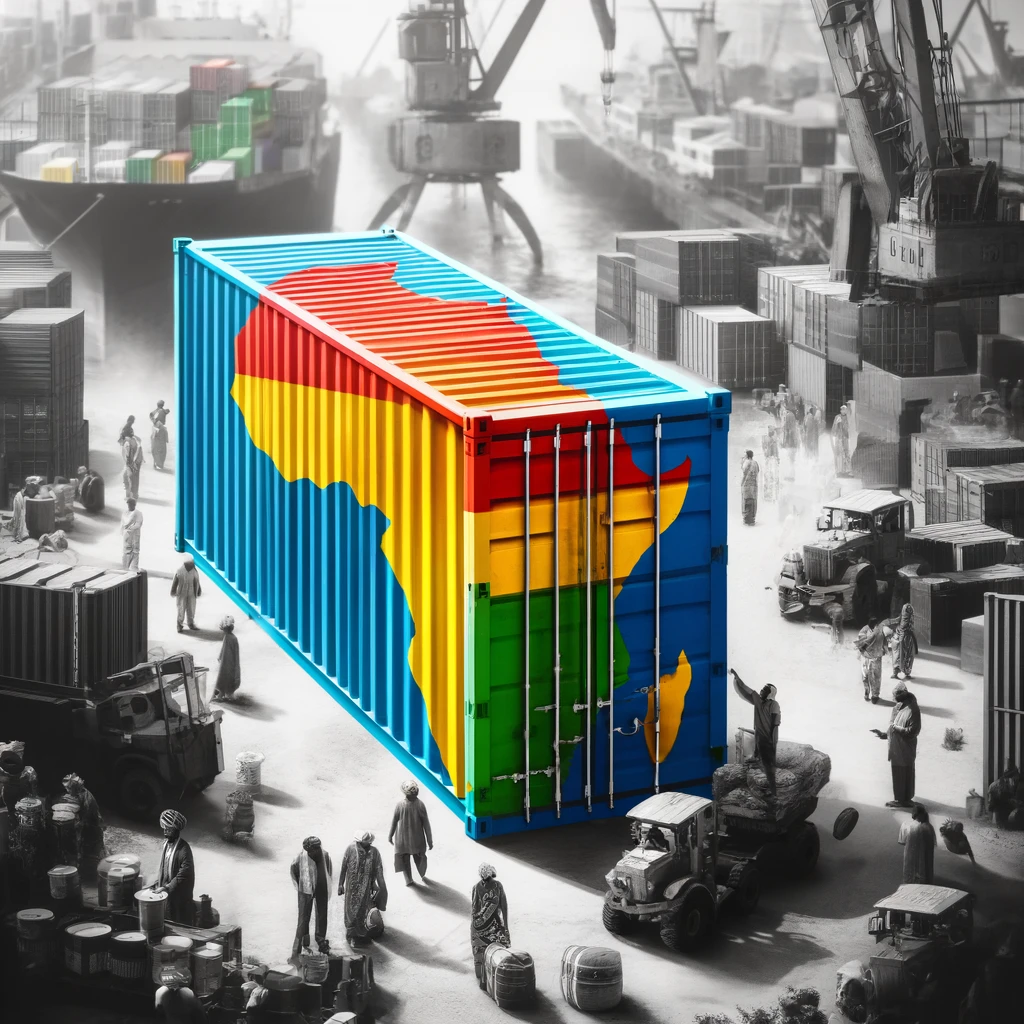
Fishing: Humanity’s oldest activity at risk?
Fishing is one of humanity’s oldest activities, dating back thousands of years. It is a vital source of food and income to many communities around the world. However, in today’s generation, certain areas of the world are at risk of being unable to fish regularly and sustainably for the next coming generations. These are due to a variety of factors such as climate change, unregulated fishing, overfishing and the increasing global demands for fish.
Fishing within African communities
Currently, fishing is critical to counties located in the West of Africa as a source of income and sustenance. Such countries include: Mauritania, Ghana, Nigeria and Senegal. Fish is an essential part of the diet of these countries with it accounting for two-thirds of all animal protein consumed. Over 5 million tonnes of fish were caught during 2019 with over 12 million people being employed in fisheries and aquaculture sectors. Women also make up a majority of the workforce in many countries in Africa. In Côte d’Ivoire, women represent 60 percent of the workforce, 30 percent in Senegal and 75 percent in Cabo Verde. Fisheries in this area generate around $400 million annually making them one of the most important sources of foreign exchange in the region. Overall, fishing within certain African communities remains paramount to the survival of their people.
Facing the Tide: Current Issues in African Community Fishing
IUU (illegal, unreported and unregulated) fishing has been in this region since the beginning of the 21st century. Foreign fishing vessels from wealthier nations, especially from Spain and China, are known to engage in IUU fishing in West African waters. These vessels can take up to 60 percent of the total catch in some regions, far exceeding legal quotas. The economic loss from IUU fishing is estimated to be in the billions of dollars annually for the region. For example, in Ghana, the annual loss from illegal fishing is estimated to be around $100 million.
Additionally, the current rate of climate change also affects the ocean temperature, leading to a change of ecosystems within the region of Western Africa and South Africa. The increased temperature leads to more acidic water. This is an issue as plankton cannot survive in higher pH waters and therefore are less available as food for fish to eat, leading to a decline of fish population.
On top of that, overfishing is a major turning point within combating a sustainable future for fishing. According to a recent report by the nongovernmental organization ActionAid, West African seas are being devastated by legal and illegal overfishing, while local fishing industries decline. Moreover, the economic partnership agreements in their currently proposed form only exacerbate this problem.
Leading the way: Organizations & Projects to Combat Issues
To combat these issues, there have been numerous projects and organizations. A few of them include:
- The West Africa Regional Fisheries Project (WARFP): This project, funded by the World Bank, aims to support sustainable fisheries management in several West African countries, including Senegal, Ghana, and Liberia. The WARFP focuses on improving fisheries governance, enhancing data collection and management, and promoting sustainable fishing practices.
- FISH4ACP: Led by the Organisation of African, Caribbean and Pacific States (OACPS), this initiative aims to address key challenges in sustainable fisheries and aquaculture. Implemented by the Food and Agriculture Organization of the United Nations (FAO) and funded by the European Union (EU) and the German Federal Ministry for Economic Cooperation and Development (BMZ), FISH4ACP focuses on fostering more inclusive and sustainable value chains in the fisheries and aquaculture sectors, contributing to the 2030 Agenda for Sustainable Development through strong partnerships.
- The Fishery Improvement Projects (FIPs): Various FIPs are being implemented in West Africa to improve the sustainability of fisheries. These projects involve collaboration between governments, NGOs, and the private sector to address issues like overfishing, illegal fishing, and ecosystem degradation. Examples include initiatives in Ghana and Senegal.
- The Sustainable Fisheries Management Project (SFMP): Implemented in Ghana, the SFMP focuses on improving fisheries management through better data collection, community engagement, and strengthening of regulations. It aims to enhance the sustainability of fish stocks and improve the livelihoods of local fishing communities.
- The Marine Stewardship Council (MSC) Certification: Some fisheries in West Africa are pursuing MSC certification to meet international sustainability standards. This certification helps ensure that fishing practices are environmentally responsible and can provide better market access for certified fish products.
- The Coastal and Marine Conservation Program: Various NGOs, such as the World Wildlife Fund (WWF) and The Nature Conservancy, run programs focused on protecting coastal and marine ecosystems in West Africa. These programs often involve community engagement, habitat restoration, and advocacy for better fisheries management.
- Regional Cooperation Initiatives: West African countries often engage in regional cooperation through organizations like the Economic Community of West African States (ECOWAS) and the Sub-Regional Fisheries Commission (SRFC). These bodies work on regional policies, data sharing, and collaborative management strategies to tackle transboundary fisheries issues.
Exploiting the Gaps: Uncovering Unwanted Side Effects of Regulations
Now although these organizations exist, these have merely only stabilized the current issues within the region rather than decline them. Problems persist and present a fearful future for fishing in the region.
In October 2018, The Gambia signed a six-year fisheries agreement with the European Union (EU) giving the bloc’s vessels the right to catch up to 3,300 tonnes of tuna and 750 tonnes of hake per year in Gambian waters. However, this is overshadowed by other foreign industrial trawlers particularly from Spain and China which enter the region unlawfully and overfish.These industrial trawlers will sometimes damage or destroy the fishing nets placed in the waters by local fishers. The inclusion of these industrial crawlers present a new issue with them fishing closer to shore, more fish are being kept further and further away from the coast, leading to more locals having to go further into the ocean to be able to fish.
Furthermore, while these organizations work tirelessly to protect local fishing communities and marine ecosystems, their efforts are often hampered by the limitations of their resources and the corrupt practices of government officials. These officials, motivated by personal gain, frequently accept bribes from foreign trawlers, allowing them to continue their unsustainable and often illegal fishing activities without facing consequences. This pervasive corruption, coupled with the overwhelming presence of foreign trawlers exploiting local waters, creates a challenging environment that severely undermines the potential success and long-term impact of the various organizations working towards sustainable fishing practices and community development.
Charting a sustainable path: Future solutions for fishing in African Communities
Implementing solutions may seem straightforward in theory, but translating them into practical action is an entirely different challenge. In many Western countries, the tradition of children staying in school is a standard expectation. However, this norm does not always apply within African communities, where children are often expected to contribute to their families’ livelihoods. Instead of attending school, they frequently help mend fishing nets or work directly on boats.
This reality not only disrupts educational opportunities but also contributes to a less educated fishing workforce in these regions. Many children, unable to access formal education, are compelled to work at a young age in order to help sustain their families. As a result, the cycle of poverty continues, making it even more difficult to introduce sustainable fishing practices and uplift these communities. Addressing these issues requires more than just solutions on paper; it demands a concerted effort to bridge the gap between tradition and modern development.
A more intensive and streamlined approach is needed to create a sustainable future for fishing within African communities. This includes reducing illegal, unreported, and unregulated (IUU) fishing, preventing overfishing, and educating the younger generation about these issues to ensure the longevity of the fishing industry.

Fishing at a Crossroads: Reflections and the Road Ahead for Sustainable Practices
Fishing plays a vital role in poor nations and communities, serving as a critical source of food security, livelihood, and economic stability. In many coastal and inland regions, fishing provides affordable protein to local diets, while also creating jobs for millions of people, particularly in areas where other employment opportunities are limited. Sustainable fishing practices are essential to preserving this valuable resource, helping to alleviate poverty, ensure long-term food supplies, and maintain the economic resilience of these vulnerable communities.
Without sustainable management, overfishing and environmental degradation threaten both the livelihoods of fishing communities and their ability to thrive. We, as mankind, must aim to protect and preserve the culture of fishing for generations to come as it is more than just a simple action, it is the foundation of civilizations built before and after us.
The Author
Ayden Refaie is currently interning at the AESC. Mr Refaie is 18-year-old aspiring physicist and engineer passionate about creating innovative inventions to improve the world. With a strong interest in airplanes and boats, he is eager to shape a future in aerospace and marine technology.
Disclaimer
The views and opinions expressed in this article are those of the author and do not necessarily reflect the official policy or position of the AESC. The AESC is not responsible for any errors or omissions, or for the results obtained from the use of this information. The content of this article is provided for informational purposes only and should not be construed as professional advice. The AESC disclaims any and all liability in connection with the article.
Sources:
- https://dialogue.earth/en/ocean/overfishing-off-west-africa-hits-livelihoods-fuelling-emigration/
- https://www.worldbank.org/en/programs/africa-program-for-fisheries
- https://www.fao.org/in-action/coastal-fisheries-initiative/activities/west-africa/ru/
- https://www.fao.org/fishery/en/news/38448
- https://www.mofwr.gm/news/eu-signs-sustainable-fishing-partnership-agreement
- https://malagen.shorthandstories.com/this-one-ill-share-with-my-minister/index.html
- https://wwf.panda.org/discover/knowledge_hub/where_we_work/west_africa_marine/
- https://saiia.org.za/research/billions-of-dollars-lost-to-illegal-fishing-in-the-sadc-region/#:~:text=In%20addition%20to%20severe%20revenue,fishing%20stocks%20and%20habitat%20destruction


